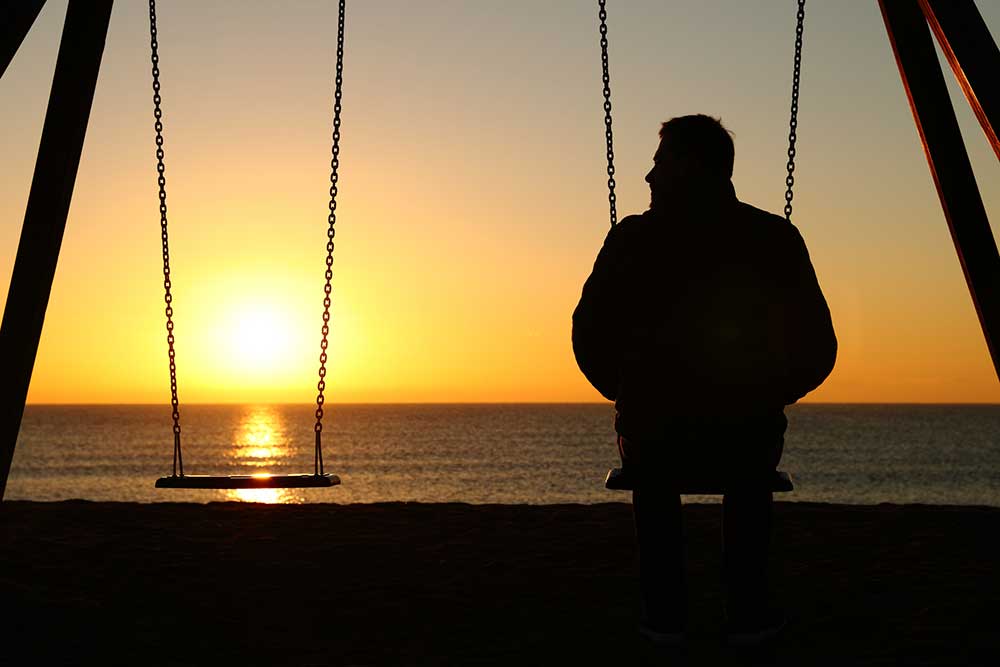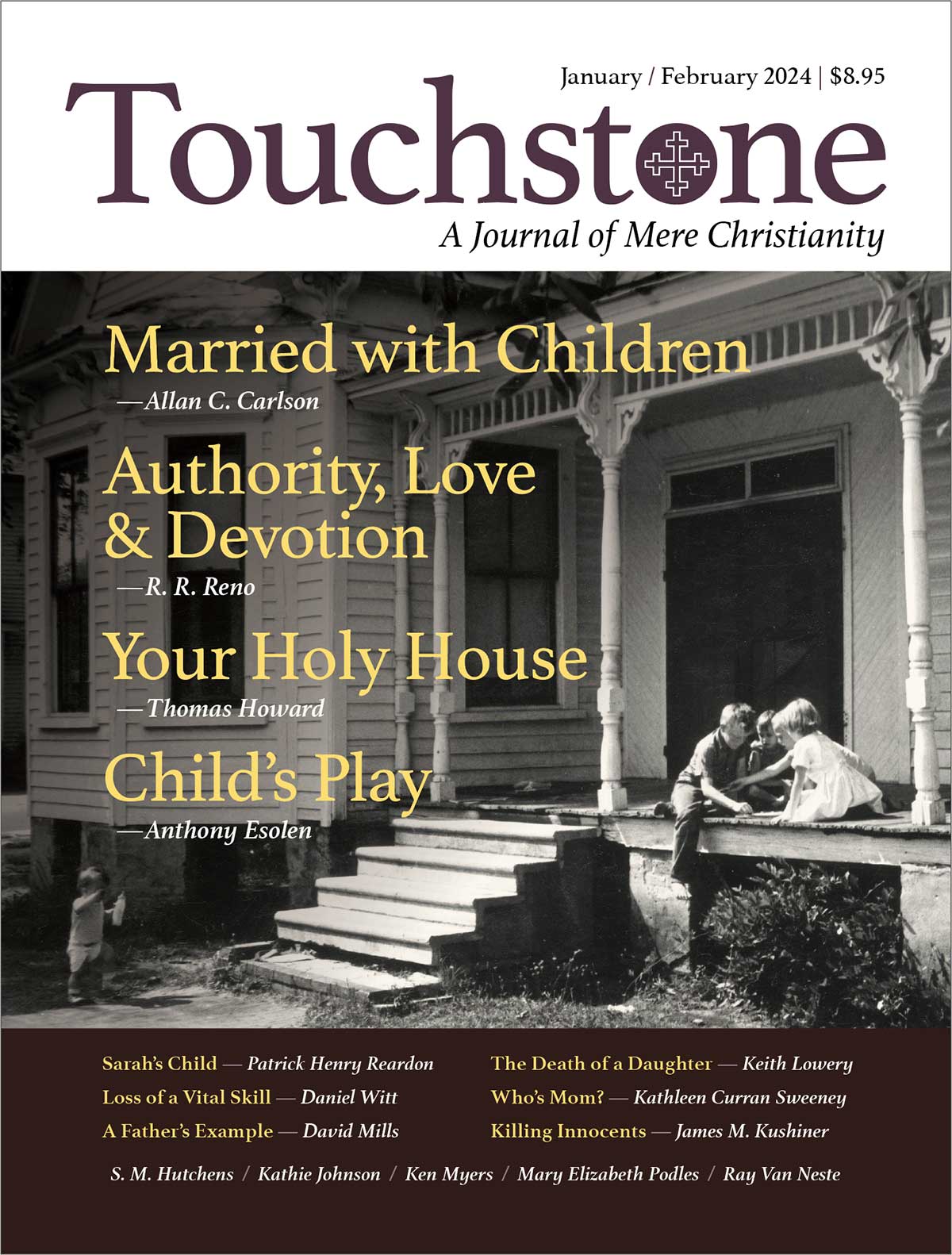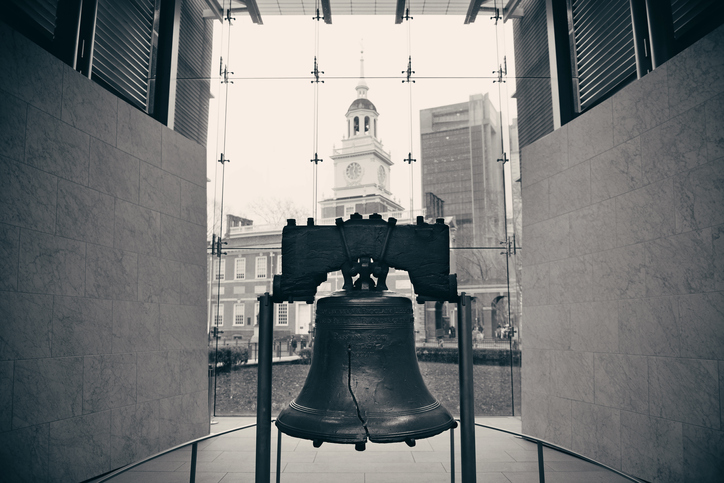Someone That I Used to Know
on the Life-Changing Death of a Troubled Daughter
“Alas! there are some wounds that cannot be wholly cured,” said Gandalf. “I fear it may be so with mine,” said Frodo. “There is no real going back. Though I may come to the Shire, it will not seem the same; for I shall not be the same.”—J. R. R. Tolkien, The Return of the King
I had a friend back in the late 1980s. He was quite a bit older than I. I was in that stage of life where all of my children were very young, and we were consumed with all of the loving and raising and disciplining and feeding and diapering that goes with that phase of life. My friend was early in his senior years—the winter of his life was just beginning to set in.
My friend loved children in a kind of shy and awkward way. He kept his pockets loaded with candy and quietly handed it out in generous amounts to any small children who crossed his path. My kids called him “the candy man.” I just called him Paul.
Paul loved people of all ages I suppose, but he was known for his concern and attentiveness toward children. After I got to know him a bit and learned his story, I better understood some of what was behind his candy-filled pockets.
Paul and his wife had lost a child under horrific circumstances many years before I knew him. Their son, their only child, had been run over and killed in front of their house by a school bus. During the time that I knew Paul, when all of my children were young, the idea of losing a child seemed at once so terrible and so “out there” that I couldn’t imagine how Paul and his wife ever managed to recover.
So I asked him one time, “How do you ever get over losing a child?” His answer was immediate and short: “You don’t,” he said; “you just learn not to cry all the time.”
Gut. Punch.
Now in the Past
Last May marked three years since my own daughter died, an event that, had I any inkling of it at the time I knew Paul, would have filled me with unspeakable horror and dread. It is, as they say, “every parent’s worst nightmare.”
It’s one thing to have a person in your life, like Paul, whom you used to know. But it is different in every way when the person you used to know is your own child.
Shortly after my daughter died, I wrote these words to some friends:
Everything about my daughter is now in the past.
Of course, we are not the first parents to lose a child, but I suspect every parent of a lost child knows too well the obscenity of the idea that your own child can become someone from your past—someone you used to know.
It’s eerie, and disconcerting, and wrong.
Our daughter was a young adult, not a child, when she died. Her death was acutely distressing but not entirely surprising. The medical examiner recorded her death as being caused by an accidental fentanyl overdose. It would be truer to say that her death was the culmination of years of reckless thrill-seeking. Notwithstanding what the relentless propaganda in the media would have us believe, there are very few truly innocent among the fentanyl dead.
We loved her more than our own lives, but in essential ways, even before she died, she had already become someone we used to know. “Things that should not have been forgotten were lost,” wrote J. R. R. Tolkien. That’s a pretty good description of our daughter’s early adult life. And her untimely death finally foreclosed any possibility of recovering something we had desperately hoped she had lost only for a time. When I shared the terrible news with my wife, that our daughter was dead, she immediately doubled over and, choking through her tears, cried out, “We can’t hope any more.” There would be no possibility of recovery or rescue now.
One of the unnerving things about losing a child is the way it alters you in almost primordial ways. So much so that it seems like the person you were before your child’s death has become yet another someone that you used to know. You have a memory of your prior self, but it is deeply misaligned in essential ways with who you have become .
What I mean is that something foundational about the expectations you brought to the world is shattered when your child dies. It seems impossible ever to see your life or your future in quite the way you did before. It isn’t that you can never again have joy, or give and receive love (although, at first, such thoughts seem grotesque and abhorrent and strangely disloyal). It is just that those things are altered for you now. It is very much as Frodo said, “Though I may come to the Shire, it will not seem the same; for I shall not be the same.”
I think I understand better now why my friend Paul chose to invest himself in giving little bits of joy to all the children around him.
Loss & Devotion
My own grandparents lost a three-year-old daughter to pneumonia during the late 1920s. My grandfather very nearly succumbed to it himself. A close relative purchased two cemetery plots for my grandmother to use because everyone expected that both her husband and her only child were going to die. But my grandfather survived somehow, and only his young daughter is buried there now.
Twenty-five years after those events, my grandfather, with two sons married, was known as someone curiously devoted to his daughters-in-law. Unusually so. He doted on them. Their wishes were his commands. And his daughters-in-law adored him for it. I now suspect that he was lavishing on them the love he had stored up for his daughter, which, for a quarter of a century, had had no place to go.
Leaning into the giving of joy and the lavishing of devotion—those are the reactions to losing a child that I have observed in the people that I used to know. It is certainly a beautiful response, though it comes at a horrific cost. It may be the most expensive thing in the world.
But it is also a clue to the central meaning of the cosmos. When John the Apostle of Jesus wrote “God is love,” he was not spouting empty platitudes but was, rather, offering us a key to unlocking our understanding of everything. I remind myself, God the Father himself knows a thing or two about loss.
I suspect that Flannery O’Connor was right when she observed, “Our response to life is different if we have been taught only a definition of faith, than if we have trembled with Abraham as he held the knife over Isaac.” Suffering, it seems, embodies a faith that can too easily be only abstract.
I do understand some things better now than I did before. I suspect every parent who has lost a child could say that. I definitely operate with fewer illusions. I know now just how much our response to tragedy is freely chosen and not something imposed upon us. A person can’t always choose his suffering, but he can always choose how he responds. That’s one of the hard-earned lessons, I guess, of having someone you love slip suddenly, totally, and forever out of reach.
Like the dew on the mountain,
Like the foam on the river,
Like the bubble on the fountain,
Thou art gone, and forever!
Love is the thing. Love big while you can.
Keith Lowery works as a senior fellow at a major semiconductor manufacturer, where he does advanced software research. He worked in technology startups for over 20 years and for a while was a principal engineer at amazon.com. He currently serves as an elder at Lake Ridge Bible Church in a suburb of Dallas, Texas.
Share this article with non-subscribers:
https://www.touchstonemag.com/archives/article.php?id=37-01-016-v&readcode=11020
subscription options
Order
Print/Online Subscription

Get six issues (one year) of Touchstone PLUS full online access including pdf downloads for only $39.95. That's only $3.34 per month!
Order
Online Only
Subscription

Get a one-year full-access subscription to the Touchstone online archives for only $19.95. That's only $1.66 per month!
bulk subscriptions
Order Touchstone subscriptions in bulk and save $10 per sub! Each subscription includes 6 issues of Touchstone plus full online access to touchstonemag.com—including archives, videos, and pdf downloads of recent issues for only $29.95 each! Great for churches or study groups.
Transactions will be processed on a secure server.
more on Family from the online archives

33.2—March/April 2020
Christian Pro-Family Governments?
Old & New Lessons from Europe by Allan C. Carlson
more from the online archives
calling all readers
Please Donate
"There are magazines worth reading but few worth saving . . . Touchstone is just such a magazine."
—Alice von Hildebrand
"Here we do not concede one square millimeter of territory to falsehood, folly, contemporary sentimentality, or fashion. We speak the truth, and let God be our judge. . . . Touchstone is the one committedly Christian conservative journal."
—Anthony Esolen, Touchstone senior editor












